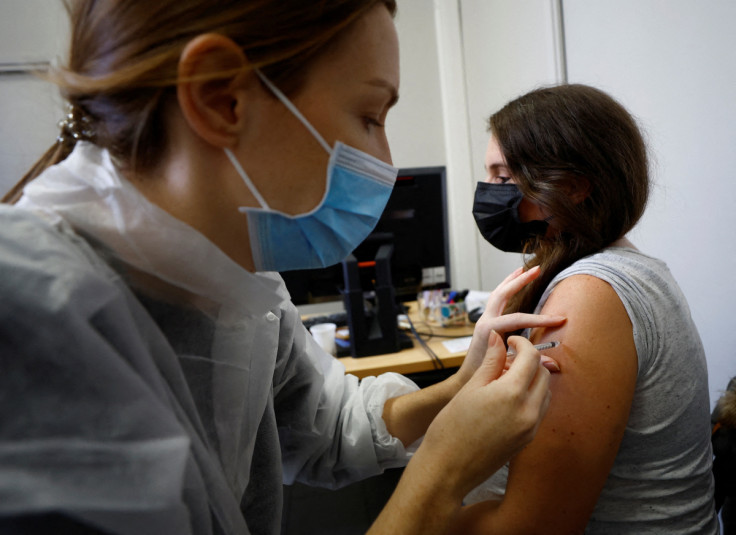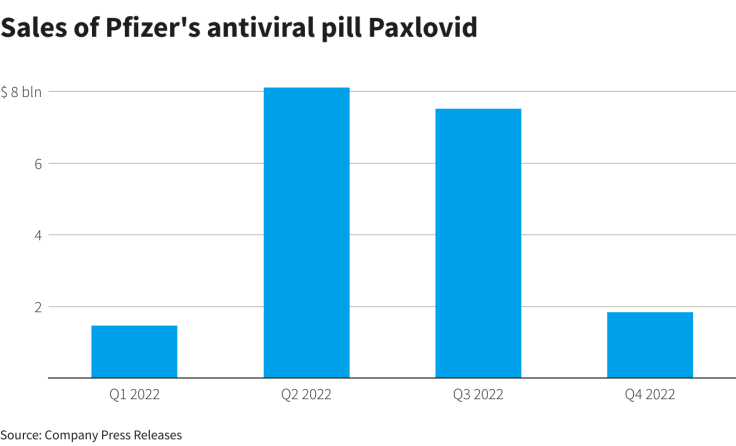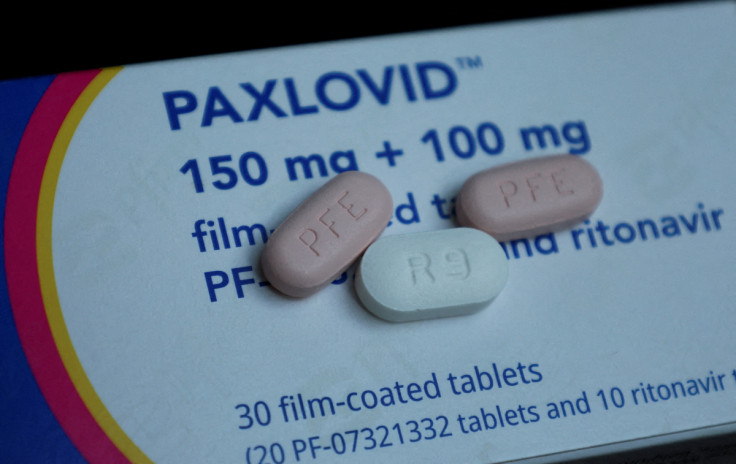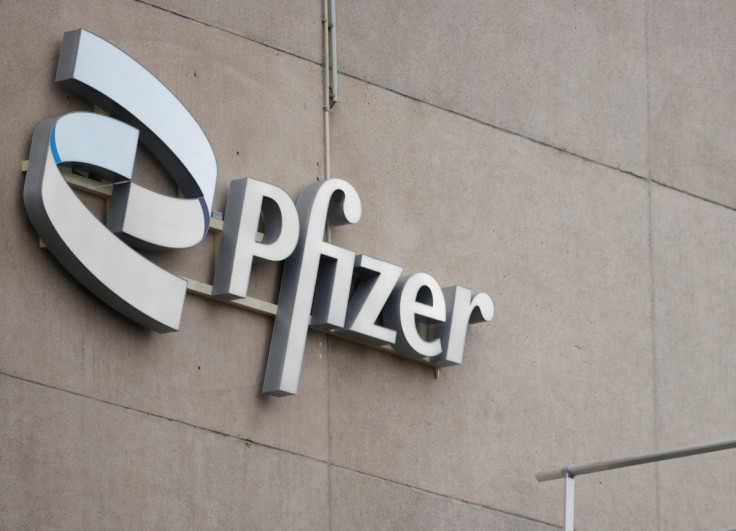Pfizer Forecasts Steep Fall In 2023 Sales Of COVID Products

Pfizer Inc on Tuesday forecast a bigger-than-expected drop in sales of its COVID-19 vaccine and treatment in 2023, intensifying investor concerns over demand for the products as governments cut orders and work through inventories.
Chief Executive Albert Bourla said that 2023 should be a "transition year" for Pfizer's COVID products, before potentially returning to growth in 2024.
Pfizer's total annual sales crossed the $100 billion mark for the first time in 2022, driven by the more than $56 billion in sales of the COVID-19 vaccine and Paxlovid antiviral. In 2023, it expects revenue to be $67 billion to $71 billion.
GRAPHIC: Sales of Pfizer's COVID-19 vaccine 9https://www.reuters.com/graphics/PFIZER-RESULTS/dwpkdernnvm/chart.png)
Pfizer's shares fell 2.8% to $42.34 premarket. The stock has tumbled 15% this month, through Monday's close.
Citi analyst Andrew Baum said in a research note that the company is struggling to escape its dependence on COVID-19 drugs.
"We see little here to change our cautious view on Pfizer's ex-COVID business," Baum wrote.
The decline in COVID-19-related revenue is not the only headwind Pfizer is facing. The drugmaker is on the brink of losing patent protections for some big-selling drugs after 2025, such as cancer treatment Ibrance and arthritis drug Xeljanz, and has said it expects to lose $17 billion in annual sales between 2025 and 2030 due to the patent expirations.
Pfizer has turned to acquisitions such as its $5.4 billion buyout of Global Blood Therapeutics Inc and its $11.6 billion purchase of migraine drugmaker Biohaven to bolster its pipeline of future products. It launched five new products last year and hopes to introduce as many as 14 more over the next year and a half, including a vaccine for respiratory syncytial virus (RSV) as well as an mRNA vaccine for influenza.
Excluding the COVID-19 drugs, Pfizer expects 2023 revenue to grow 7% to 9%.
Pfizer developed its COVID-19 vaccine with German partner BioNTech, and the companies split the profits. The U.S. drugmaker forecast 2023 sales of $13.5 billion from the shot, below Refinitiv estimates of $14.39 billion, and projected $8 billion in sales of Paxlovid, short of analysts' expectation of $10.33 billion.
GRAPHIC: Sales of Pfizer's antiviral pill Paxlovid (

)
Bourla said the company expects to start selling its vaccine Comirnaty through commercial channels in the United States in the second half of 2023, rather than selling the shots directly to the government. After that transition, the company hopes to roughly quadruple the U.S. price of the COVID-19 vaccine.
Analysts and investors have been looking for clarity on China demand for Paxlovid, where the drug is only covered by the country's broad healthcare insurance plan until late March.
Pfizer said its current 2023 forecast for sales does not assume any revenue from China after April 1, but Bourla said the company expects to offer Paxlovid in the private market thereafter.


© Copyright Thomson Reuters 2024. All rights reserved.





















